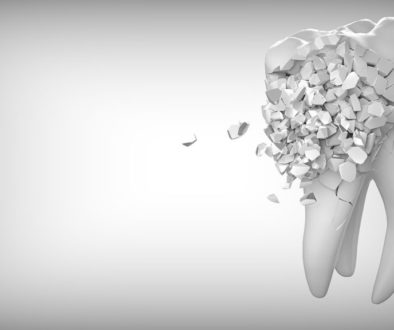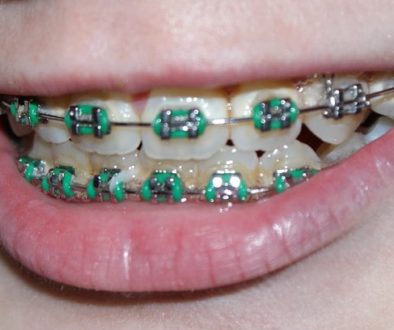Dry Mouth – Causes and Solutions
 Does your mouth often feel like this picture? If so, you may be struggling with dry mouth (medically known as xerostomia). There are a lot of different reasons for dry mouth and an equal number of oral health problems that go along with it. I’m going to show you what causes dry mouth, what some of the dangers of dry mouth are, and how you can decrease your dry mouth and reduce the risk of problems associated with it.
Does your mouth often feel like this picture? If so, you may be struggling with dry mouth (medically known as xerostomia). There are a lot of different reasons for dry mouth and an equal number of oral health problems that go along with it. I’m going to show you what causes dry mouth, what some of the dangers of dry mouth are, and how you can decrease your dry mouth and reduce the risk of problems associated with it.
What causes dry mouth?
Medications and Drugs
There are so many different medications and drugs than can cause dry mouth that we can’t possibly list them all. Check pretty much any medicine for it’s list of side effects and dry mouth is usually on there somewhere. Here are list of some of the most common…
- Caffeine
- Alcohol
- Opiate painkillers such as hydrocone or oxycodone
- Most blood pressure medications, especially diuretics
- Antihistamines such as Benedryl or Claritin
- Decongestants for colds
- Common medications for depression and anxiety such as SSRI’s
- Asthma medications.
Like I mentioned, this isn’t anywhere near a complete list. If you’re not sure, check out a list of side effects for your specific medications. Drugs.com is a good resource for this.
Dehydration
Most people don’t drink enough water throughout the day. In fact some people don’t even drink plain water at all. I’ve met a lot of people who only drink sodas, teas, or fruit juices. While they do have water in them, many of these drinks also contain other unhealthy compounds and many are caffeinated. As we just learned, caffeine is a diuretic which actually makes you lose water.
The current recommendation is that you drink eight, 8 oz cups of water a day. This is equal to approximately 2 liters or half a gallon. I know I don’t drink that much every day and I don’t know many people who do. So if you’re struggling with dry mouth, start by drinking enough water!
Diseases / Infections
- Sjogren’s Syndrome – Sjogren’s syndrome is an auto-immune disease where your body attacks your salivary glands and a couple of other areas. The salivary glands are slowly destroyed and you’re unable to produce enough saliva anymore which leads to dry mouth.
- HIV/AIDs
- Alzheimer’s
- Diabetes
- Anemia
- Cystic Fibrosis
- Rheumatoid Arthritis
- High blood pressure (hypertension)
- Parkinson’s Disease
- Stroke
- Mumps
Head and neck radiation or chemotherapy for cancer
Both head and neck radiation and chemotherapy treatments for cancer tend to kill the cells that create saliva. Once they are destroyed they can’t be replaced. The best we can hope to do in these cases is manage the side effects of not having enough saliva.
Smoking and Chewing Tobacco
Both of these reduce the amount of saliva you make and also make the problems that go along with even worse.
Mouth Breathing
Some people always breath their mouth, either just at night or all the time. Your mouth is supposed to be a very moist environment but it dries out very quickly if your mouth is open. This causes the sensation of dry mouth and also is highly related to gum irritation around the upper front teeth.
What are the consequences of dry mouth?
Cavities
Cavities are the biggest problem that goes along with dry mouth. Saliva has a variety of enzymes and minerals that are protective against the bacteria that cause decay. Saliva does everything from washing away food and bacteria, to fighting off bad bacteria, to rebuilding damaged enamel on your teeth. The more saliva flow you have, the better these things can happen.
Gum disease
Gum disease is primarily an infection of the gums surrounding your teeth. The bacteria that cause gum disease are very different than the bacteria that cause decay but they thrive in many of the same conditions that promote cavities.
Bad breath
Bad breath is a combination of rotting food and chemicals release by bacteria and fungi and in your mouth. The most noxious of these are known as volatile sulfur compounds (VSC’s). You know that rotten egg smell? That is the smell of sulfur as well.
Burning and irritated tongue
Many people with dry mouth also develop burning, raw, red, irritated tongues. Many times this is a result of an overgrowth of certain types of fungi in your mouth (primarily Candida).
Thrush
Thrush is the overgrowth of the Candida albicans fungus in your mouth. Most people have a small amount of this in their mouth but it is kept in control by the enzymes in your saliva and competition by bacteria. Dry mouth provides an environment where it can thrive and get out of control. Thrush usually shows up as a white covering on your tongue that goes along with some tongue irritation and a terrible taste.
Difficulty in wearing dentures
Dentures require a nice moist environment in order to stay in place well without causing too much irritation. You are also at a much higher risk of developing infections under your dentures if your mouth is too dry.
What can you do about dry mouth?
Drink more water.
Everyone with dry mouth should start with this one. Aim for eight, 8 oz cups of plain water a day or 2 liters / a half gallon. Some people even need to bring water with them everywhere and take small sips all throughout the day. Many of my oral cancer survivor patients do this religiously.
Ask your physician about using different medications that don’t cause as much dry mouth.
Chew sugar free gum.
Chewing stimulates your saliva glands to work harder. More saliva = less dry mouth.
Use sugar free mints or candy to stimulate saliva flow.
Anything with a strong flavor will also cause your saliva glands to work harder. Make sure they are sugar free otherwise you’ll be causing another problem (cavities) while trying to fix the dry mouth.
Dry mouth mouthrinses
There are a variety of dry mouth mouthrinses out there right now. The most well known is Biotene which contains specific enzymes to help stimulate and replace saliva. There are a lot of other options out there too with more coming out every year. The market has gotten a lot bigger with our society taking more and more medications every year. I’ve got some specific mouthrinse recommendations on our mouthwash product guide page.
Try to reduce or stop smoking.
Work to stop mouth breathing.
Practice every day breathing only through your nose. A good rule of thumb is to practice for 5 minutes at a time, 4-5 times a day. Over time this will become a habit and your mouth breathing habit should start to get better.



